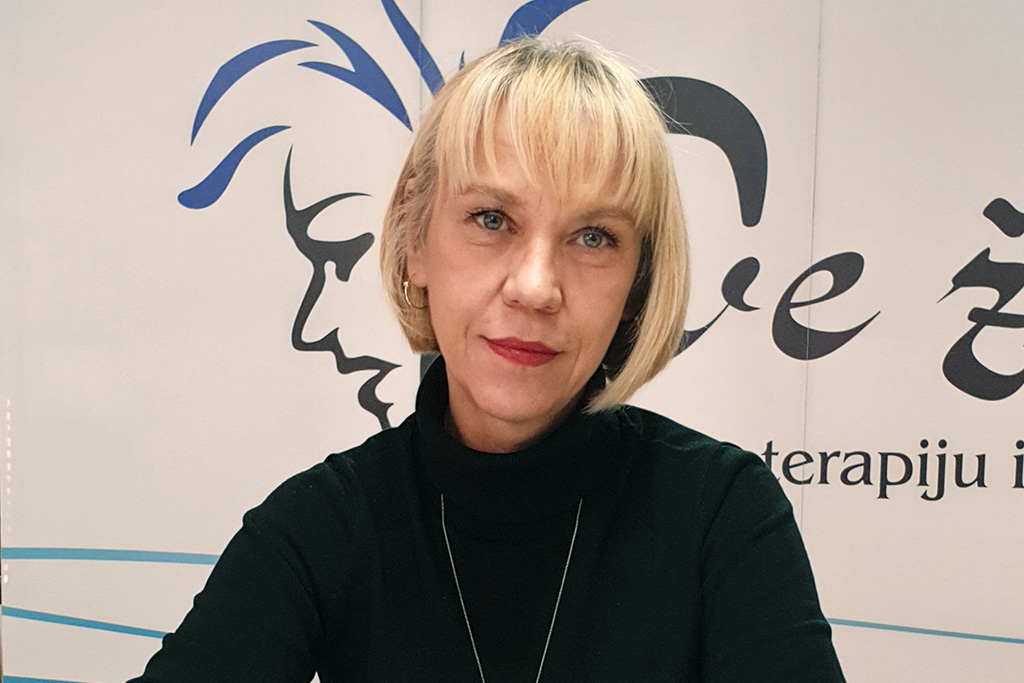From war trauma to trust-based recovery
Founded during the war in Bosnia and Herzegovina, Vive Žene has spent three decades supporting women and children living with trauma.

In 1994, the women’s rights organisation Vive Žene was founded in Bosnia and Herzegovina by three women from Germany. They wanted to help Bosnian women during the war. The organisation initially supported women and children who had been discplaced, particularly from eastern Bosnia and Herzegovina.
“We were surrounded by Serbian soldiers. There was shelling in the canton of Tuzla, but we didn’t have direct fighting in the town. Around 200,000 internally displaced persons moved to Tuzla Canton,” Jasna Zečević, Director at Vive Žene, recalls.
During this time, around 200,000 internally displaced persons were housed in collective settlements. Vive Žene established a center for therapy and rehabilitation where women and children could stay for several months. The priority was to create a sense of normalcy and hope.
Creating safety before healing
For the first two years, the organisation focused on immediate support for internally displaced women and children. Over time, their work expanded to include aftercare and psychosocial community programmes.
“We didn’t start with psychotherapy immediately because it was not possible in that period of crisis. But once they [women we helped] felt safe, they were ready to go to psychotherapy,” Jasna explains.
Even when the war ended, Vive Žene remained present in the community to support reintegration and long-term healing. Their working model combined individual support, community engagement and political advocacy. Much of that structure remains in place today.
Psychotherapy with trust at its core
Today, the organisation continues to focus on what they call “inner healing”, offering intensive psychotherapy for women affected by trauma. In the early 2000s, they expanded their work to address gender-based violence more broadly.
Their safe house is staffed by a multidisciplinary team of psychologists, social workers, legal advisers and pedagogues. In addition to traditional psychotherapy, they also offer body therapy. The organisation also works actively to prevent the transmission of trauma across generations. Another part of their important work is reconciliation, meaning they try to connect the groups who were divided by the war.
Supporting testimony without retraumatisation
One of their most significant accomplishments came in 2006, when their persistent lobbying helped secure a law recognising survivors of conflict-related sexual violence. The team continues to work with survivors preparing to testify in court, ensuring they are supported and not retraumatised by the legal process.
“We prepare them psychologically for the courtroom experience. The court system is rigid, and the process itself can be retraumatising, especially when survivors are invited to testify in multiple cases. Our role is to help them process fragmented memory caused by trauma, and to bring their recollections into one clear and calm narrative,” Jasna says.
To avoid further traumatisation, Vive Žene has developed networks of support, offering survivors access to trained professionals and institutions that understand their situation. The organisation also works to sensitise professionals in the chain of protection to the needs of survivors.
Healing begins with trust
“What matters most is trust,” Jasna says. “When someone is raped, their connection to the world is broken. They become isolated. If the trauma isn’t processed, it can develope into psychosomatic symptoms.”
Many women seek help long after the violence took place. They may have lived with symptoms such as insomnia or high blood pressure—without recognising any link to their past experiences. In therapy, it sometimes becomes possible to begin understanding these connections.
“For us, the biggest success is when women are coming to us because they trust us.”
Gentle outreach, lasting relationships
Part of the organisation’s method is to take every opportunity to reach women—at community events, during informal conversations, or through awareness campaigns. They have a gentle way of approaching women.
“We never said: do you have trauma? Instead, we asked: do you know someone who struggles with sleeping, eating or connecting with their children?”
Vive Žene quickly increased their outreach and trauma support work when Russia invaded Ukraine in 2022. They saw that many women in Bosnia and Herzegovina were retraumatised by media images of war.
“People can integrate and heal from trauma, but it still remains inside them,” Jasna explains.
When trauma is passed down
The organisation also focuses on preventing the transfer of trauma to children. In rural areas where women returned after the war, children started school in Republika Srpska, one of the two entities within Bosnia and Herzegovina, often bringing with them vivid fears and inherited memories.
“They told us they didn’t want to walk through the forest, believing soldiers might still be there. These fears were shaped by stories told at home,” says Jasna.
To address this, the organisation began working with both parents and schools.
“We encouraged parents to speak openly with their children. Even if they don’t talk, children sense the pain and build their own stories around it. We wanted them to know the truth, so they can understand the past and choose how to live with it.”
The Kvinna till Kvinna Foundation has worked for women’s rights in Bosnia and Herzegovina since 1993.